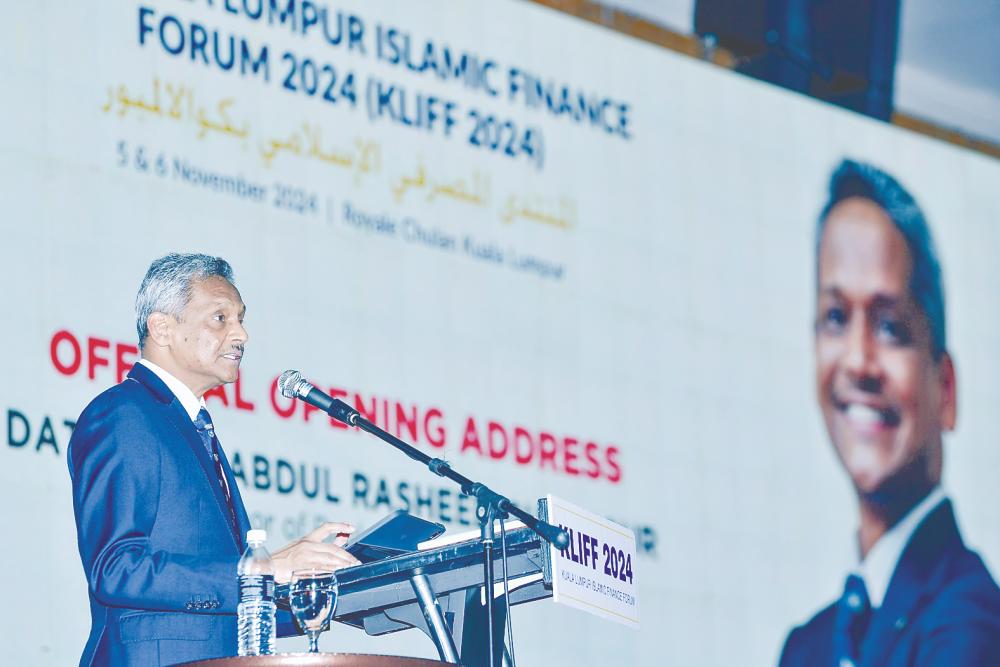KUALA LUMPUR: Malaysia must make concerted efforts to elevate the role of Islamic finance in achieving sustainable economic growth and social justice.
This includes mobilising capital and funnelling investments to high-impact sectors aligned with national priorities.
Bank Negara Malaysia governor Datuk Seri Abdul Rasheed Ghaffour said Islamic finance has significant potential to revitalise the economy via three key propositions – embodying Maqasid Shariah in economic and sustainable reforms, advancing innovation for value-based solutions, and strengthening global integration for mutual development and shared prosperity.
“All of us must contribute towards a more sustainable and ethical financial ecosystem by fostering Islamic financial practices and solutions that adhere to the fundamental principles of fairness, transparency and inclusivity.
“Wealth generation, circulation and investment should also be increasingly channelled towards economic activities prioritising societal and environmental well-being over the purely capitalistic goal of profit maximisation.
“In the long run, our sincere intention and unwavering efforts to embody the fundamental values of Shariah will undoubtedly allow us to bear the fruits of the reforms,” he said in his keynote address at the 19th Kuala Lumpur Islamic Finance Forum 2024 today.
He said Islamic finance now stands on a solid foundation, having gained great traction domestically and globally in recent decades.
Abdul Rasheed noted that within just ten years, global Islamic finance assets grew more than twofold, surpassing US$4.5 trillion (RM19.5 trillion) in 2022, up from US$1.7 trillion in 2012.
“In Malaysia, the Islamic banking sector accounts for nearly half the total financing, while takaful accounts for about 25% of total net premiums or contributions. The Islamic interbank money market volume covers around a third of the entire market, and syariah-compliant stocks account for 81% of listed stocks.
“Malaysia is also home to the world’s largest sukuk market, accounting for 42% of the global outstanding sukuk,” he said.
Abdul Rasheed commended the Malaysian Islamic finance industry for embracing value-based intermediation (VBI) five years ago. This strategic alignment with Maqasid Shariah has enabled the industry to have a leg up while the rest of the sector is still at the exploratory stage of the ethical and sustainable journey.
With the recent launch of the third cohort of the VBI Financing and Investment Impact Assessment Framework (VBIAF) Sectoral Guides and the Maqasid Shariah Scorecard in October, the industry should collectively work to intensify the implementation of VBI and measure its impact more effectively.
“Moving forward, stronger implementation of VBI requires concerted efforts and holistic alignment across all key stakeholders. In particular, shareholder stewardship is vital to ensure the transformative impacts of value-based finance are seen and felt by many.
“Shareholders can drive positive changes across the entire ecosystem, aligning business practices with the best conduct, strengthening governance and promoting positive consumer outcomes,” Abdul Rasheed said.
Malaysia’s chairmanship of Asean next year will focus on deepening regional collaboration to support the sustainability agenda of Asean countries, he said. “There will be new growth opportunities to integrate Islamic finance with climate change and transition finance initiatives.”









